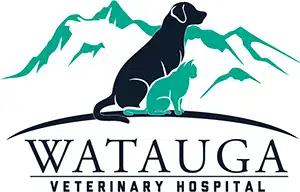Additional Veterinary Services
Watauga Veterinary Hospital is a full service animal family practice. We are proud to serve as the primary veterinary physician for Boone and the surrounding areas.
We are proud to offer a full range of services for your convenience and to provide the best care possible for your pets.
Services
Pharmacy
For your convenience, we offer both an in-house pharmacy and an online service so we can meet all your pet’s needs. We provide medications, flea and tick control products, and heartworm preventives—all at competitive prices. We’ll also pass along any discounts or rebates from drug manufacturers.
When you order from us, you’ll know that the products you’re purchasing have been stored properly and are approved for use in Canada. And if you have any questions, you can ask your veterinarian.
Feel free to pick up your pet’s prescriptions at our clinic or order refills online.
Pain Management and Control
We now know that animals experience pain in much the same way as people. We use our knowledge of pain medication and pain relief strategies to prevent and manage pain in pets, both before and after surgery and in the event of an injury or infection. We can also ease pain caused by chronic disease, such as arthritis.
Ask us about our pain management options and plans, which we will tailor to your pet’s medical condition and individual needs. We also offer acupuncture and chiropractic services, which can help control pain in some pets.
Chemotherapy and Cancer Treatment
Like us, animals such as dogs, cats, ferrets, and rabbits can get cancer. Fortunately, however, some forms of cancer are curable. In addition, recent advancements in cancer treatment can extend the lives of many dogs and cats. Treatments such as chemotherapy, radiation therapy, and surgery may be used to stop the spread of cancer and remove or destroy cancer cells and tumours.
You can help prevent some forms of cancer by having your pet spayed or neutered at an early age, but most cancers cannot be prevented. This is why early detection is one of our best weapons against this disease.
Regular veterinary visits can help us keep track of what is normal for your pet, as well as detect anything suspicious. However, because we typically only see your dog or cat once or twice a year, we also rely on your knowledge of your pet to catch any potential issues early. Contact us right away if you notice any changes in your pet’s physical appearance or behaviour (such as lumps or bumps, sores that don’t heal, vomiting, diarrhea, or changes in eating habits).
Microchip Pet Identification
Imagine if your dog or cat got lost. You’d want to give him or her the best chance of getting home. With microchipping, you can.
Microchipping is a safe, permanent way to identify your pet in case he or she becomes lost. A microchip, which is a tiny device about the size and shape of a grain of rice, is placed just under the loose skin at the back of the neck. When a lost dog or cat without an ID tag is found, a veterinarian or veterinary technician will use a handheld microchip scanner to check for a chip. If the pet has one, it will transmit its ID number to the scanner via a low-frequency radio wave. The veterinary hospital or shelter then calls the chip manufacturer, retrieves the pet owner’s contact information, and calls the owner.
Even the most responsible pet owners can’t always guarantee their pet won’t get lost. A leash could break or slip out of your hand, a pet could push through a screen door or window, or a contractor or friend might accidentally leave a door or gate open.
We recommend that you use a microchip, along with a collar and ID tag, to identify your pet. An ID tag is still a reliable identification method. Pets that have tags with current contact information are more likely to not end up in shelters and tend to get home faster than those without tags. However, collars and ID tags aren’t permanent and can be removed (overnight or for grooming); pets can also lose them. With a microchip, your pet will have a much better chance of being identified and returned to you. Pets without microchips that end up in shelters may be adopted out to another family or even euthanized.
Please contact us to schedule an appointment to microchip your pet. Although we hope your pet never becomes lost, we want you to be prepared. We can also suggest a plan to have in place so if your pet does go missing, you’ll be able to act quickly.
We can microchip ferrets, rabbits, birds, and other companion animals, too!
Location
2531 US Highway 421 N
Boone, North Carolina, 28607
Contact
Phone: (828)-297-3300
Email: info@wataugavet.com
Hours of Operation
Monday - Friday: 7:30am-5:00pm
Saturday - Sunday: Closed
